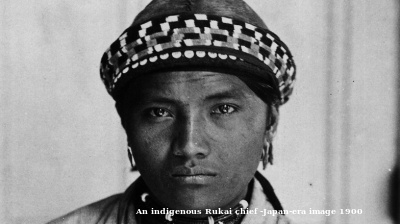Taiwanese President Lai Ching-te is set to visit Paraguay next month, a move which could include transit stops in the United States and is already drawing the ire of Beijing. Paraguay remains Taiwan’s sole diplomatic ally in South America and one of just a dozen worldwide, a position that continues to attract both external pressure and domestic debate.
Paraguayan President Santiago Peña confirmed at a bilateral investment forum that preparations are underway to welcome President Lai in around 30 days. The forum, held in Asunción, highlighted the economic and diplomatic ties that have existed between Paraguay and Taiwan since 1957. Paraguay’s partnership with Taipei is rooted in shared historical and political experiences, particularly their respective transitions to democracy, the South China Morning Post noted.
The planned visit aligns with Taiwan’s ongoing effort to reinforce its limited but symbolically significant network of formal allies. Lai’s itinerary may include stopovers in New York and Dallas, according to Taiwanese state media. While these are officially described as “transits,” such visits often carry substantial political weight given the United States’ role as Taiwan’s leading security partner.
China’s response has been predictable but no less forceful. Chinese Foreign Ministry spokesperson Lin Jian reiterated Beijing’s objection to any form of official engagement between the US and what it considers a “Taiwan region." According to state media, Lin also urged Paraguay to embrace what he called the “trend of the times” and normalise relations with Beijing.
Despite this, Paraguay’s government remains firm. Peña described the relationship with Taiwan as based on values rather than solely economic interests. He added that defending ties with Taiwan is an expression of Paraguay’s sovereignty and commitment to democratic principles.
In recent years, Beijing has intensified its efforts to isolate Taiwan diplomatically, persuading several Latin American countries to switch their recognition to China in exchange for trade and investment. Paraguay, however, expelled a Chinese envoy last December after accusations of lobbying local politicians to abandon Taiwan. This incident reflects the continued sensitivity of the issue within Paraguay’s domestic politics.
Alongside the political context, Taiwan has also sought to deepen economic cooperation with the South American nation. Taiwanese Foreign Minister Lin Chia-lung led a delegation to Paraguay, promoting projects in healthcare, digitalisation, and smart manufacturing. Taiwan’s Healthcare Information System has already digitised patient records in over a thousand Paraguayan clinics, and recent donations include portable ultrasound devices and CT scanners.
Taiwan’s diplomatic strategy often combines development assistance with investment incentives. The recent Paraguay–Taiwan business forum showcased this approach, drawing business leaders from Taiwan’s high-tech and manufacturing sectors. Discussions covered plans for a data centre focused on artificial intelligence and a zero-tariff agreement on Paraguayan pork exports.
While economic pragmatism has led some Paraguayan business and political figures to advocate for closer ties with China, the government’s current stance suggests a broader calculation. As Peña put it, Paraguay seeks to choose its allies without external coercion.
President Lai’s upcoming visit appears intended not only to reinforce existing ties but also to project Taiwan’s ongoing relevance in a region where Beijing’s influence continues to expand.
News

Albania aims to revive domestic defence industry as it hosts top Nato officials
Albania ended domestic arms production after the collapse of its communist regime but is now working to restart the industry.

Russian team comes dead last in Hungary’s annual grave digging contest
In a surprise move, Hungary invited a Russian team to its annual grave digging competition. In an even bigger surprise the team from Novosibirsk came dead last.

Flydubai expands Kenya operations with new Nairobi flights and increased Mombasa services
Flydubai launches new Nairobi flights from October 15 and increases Mombasa to daily service, bringing total weekly Kenya flights to 11 as part of African expansion.

Small, medium-sized countries establish Future of Investment and Trade Partnership
UAE joins 13 countries in establishing Future of Investment and Trade Partnership to promote open trade, strengthen supply chains and address emerging economic challenges globally.

.jpeg)


